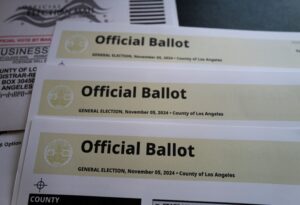Micheli Files
There are several ways in which the Legislature can influence the rule-making activities of state executive branch agencies, primarily through the lawmaking and budgetary processes.
Micheli Files
There are numerous rules of statutory construction used by the courts in California. Those involved in the development and implementation of state legislation should be aware of some of these principles.
Micheli Files
California’s Elections Code provides rules for ballot titles and arguments that are used for measures submitted to the voters.
Micheli Files
Some of the most challenging negotiations lawmakers face come when trying to remove an initiative from the upcoming ballot. There’s a reason for that. Actually, a lot of reasons.
Micheli Files
In looking over the 1,200 bills that reached Governor Newsom’s Desk during the 2024 Session, I found several with interesting provisions. They are in random order as I came across them in my review of the bill language.
Micheli Files
On occasion, bond measures are submitted to voters in the State of California, such as this November 5 when the statewide electorate will consider two different $10 billion bond measures, one on climate change and one on school facilities.
Micheli Files
In delegating authority to the executive branch of government, a question that is often raised is whether legislatures can be expected to adopt statutes that address every detail of public policy? In some instances, they can, but in others they cannot.
Micheli Files
Longtime Capitol lobbyist and regular Capitol Weekly contributor Chris Micheli is a “self-professed legislative geek.” To that end, he has collected and is now sharing with us the following statistics from the recently-concluded 2023-24 California Legislative Session:
Micheli Files
Both the California Governor and the Lieutenant Governor have formal roles in the lawmaking process, despite the fact that this authority is granted to the legislative branch of state government pursuant to Article IV of the California Constitution.
Micheli Files
Some in the Capitol community believe there are unnecessary limitations on the public’s ability to access some of the committee hearings and floor sessions of the California Legislature. Are these limits on public participation permissible under state laws?










